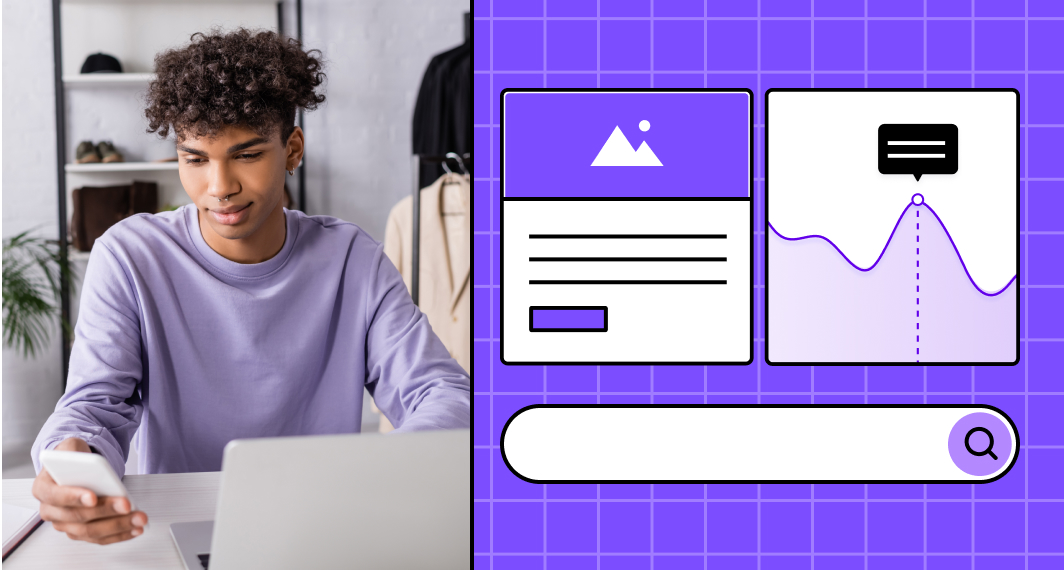What is custom app development?
Custom mobile app development typically involves building software applications from scratch, specifically tailored to meet your unique needs and preferences. It goes beyond off-the-shelf solutions and offers a fully personalised user experience, ensuring that your app's design, features and functionality align perfectly with your requirements.
Building custom applications allows for greater flexibility, scalability and the ability to address specific challenges to maximise your app's potential for success.
In recent years, the custom app development process has been streamlined thanks to the rise of low-code app builders, meaning it's cheaper and more efficient to create custom apps.
How is custom app development different from no-code app development?
Both custom development and conventional app development focus on creating different apps for different use cases. However, the table below highlights some of the key differences in how custom app development differs from conventional app development.
Custom application development | No-code app development | |
Customisability | Involves creating software applications that are specifically tailored to the unique business requirements | Relies on pre-built solutions that cater to a broader audience |
Personalisation | Offers a personalised user experience, as it's designed to address specific challenges and preferences | Has more standardised user interface and features |
Flexibility | Allows for greater flexibility in incorporating specific features and functionalities | Offers limited customisation options as they're off-the-shelf applications |
Complexity | It can be more complex and time-consuming since it starts from scratch and involves designing everything from the ground up | It can be faster as it leverages existing templates and frameworks |
Cost | The cost of custom app is often more due to the additional time and effort required | It’s cheaper than custom app development |
Scalability | The apps are designed to scale with the growth of the organisation | The apps may have limitations in adapting to significant changes or expansions |
Process of building custom apps
To develop custom applications, you need to follow a specific app development process, which involves the following key steps:
1 - Requirements gathering
Before starting with custom mobile app development, it's important to understand your needs, objectives and target audience and gather detailed requirements to define the app's purpose, features and functionalities.
2 - Design stage and planning
After gathering input, the first step is to create a wireframe or prototype to visualise the app's layout and user interface. This involves planning the app's architecture, data flow and technology stack.
3 - Development
After prototyping comes coding. You need to write the code to build the app's front-end and back-end components, develop features and integrate necessary APIs or third-party services.
4 - Testing
After the development phase, you need to conduct rigorous testing to identify and fix bugs, errors and usability issues. It's important to perform functional, performance and security testing.
5 - Deployment
Prepare the app for deployment on the desired mobile app store only after successful testing of the app. Here, you also need to set up the necessary servers and databases.
6 - Launch
Finally, release your mobile application to the target audience. At this stage, it's important to monitor the performance and address any issues.
7 - Maintenance and support
After a successful launch, you need to maintain your app by constantly updating it to ensure smooth business operation and compatibility with new devices or OS versions.
Get a free app prototype now!
Bring your software to life in under 10 mins. Zero commitments.


 Facebook
Facebook X
X LinkedIn
LinkedIn YouTube
YouTube Instagram
Instagram RSS
RSS


